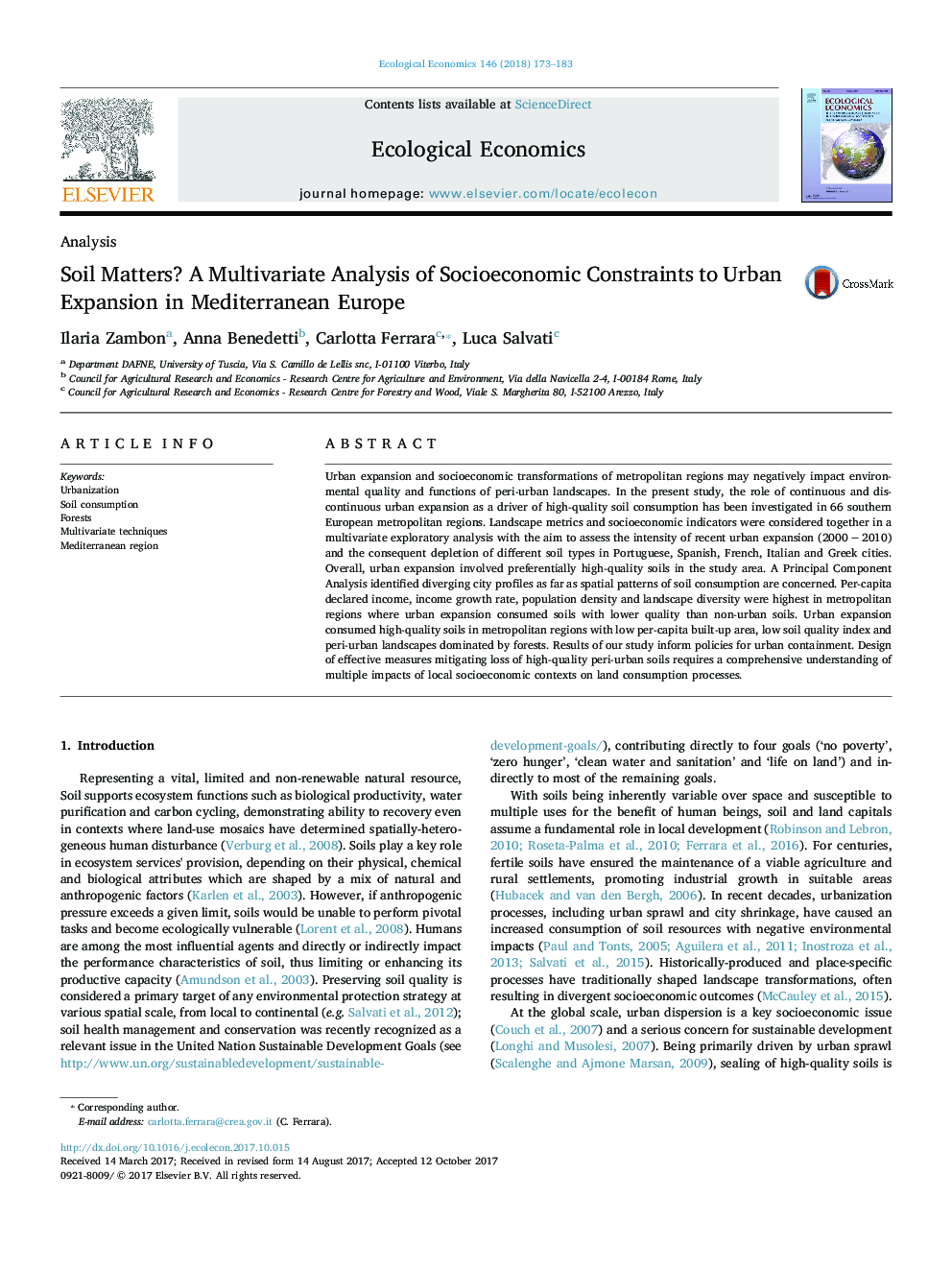| Article ID | Journal | Published Year | Pages | File Type |
|---|---|---|---|---|
| 7344526 | Ecological Economics | 2018 | 11 Pages |
Abstract
Urban expansion and socioeconomic transformations of metropolitan regions may negatively impact environmental quality and functions of peri-urban landscapes. In the present study, the role of continuous and discontinuous urban expansion as a driver of high-quality soil consumption has been investigated in 66 southern European metropolitan regions. Landscape metrics and socioeconomic indicators were considered together in a multivariate exploratory analysis with the aim to assess the intensity of recent urban expansion (2000 â 2010) and the consequent depletion of different soil types in Portuguese, Spanish, French, Italian and Greek cities. Overall, urban expansion involved preferentially high-quality soils in the study area. A Principal Component Analysis identified diverging city profiles as far as spatial patterns of soil consumption are concerned. Per-capita declared income, income growth rate, population density and landscape diversity were highest in metropolitan regions where urban expansion consumed soils with lower quality than non-urban soils. Urban expansion consumed high-quality soils in metropolitan regions with low per-capita built-up area, low soil quality index and peri-urban landscapes dominated by forests. Results of our study inform policies for urban containment. Design of effective measures mitigating loss of high-quality peri-urban soils requires a comprehensive understanding of multiple impacts of local socioeconomic contexts on land consumption processes.
Related Topics
Life Sciences
Agricultural and Biological Sciences
Ecology, Evolution, Behavior and Systematics
Authors
Ilaria Zambon, Anna Benedetti, Carlotta Ferrara, Luca Salvati,
